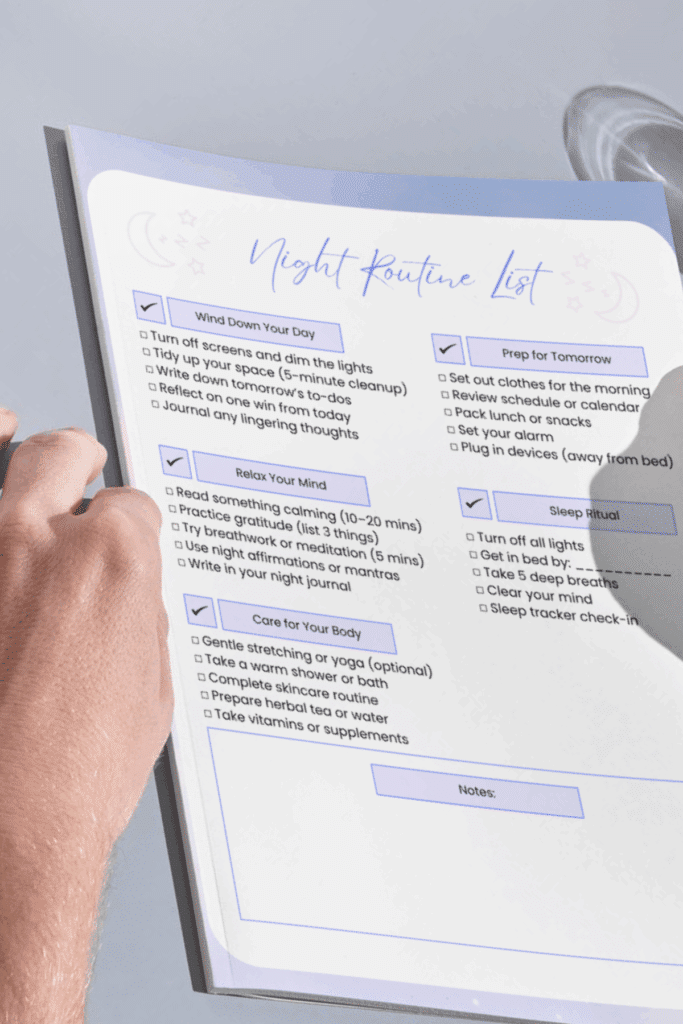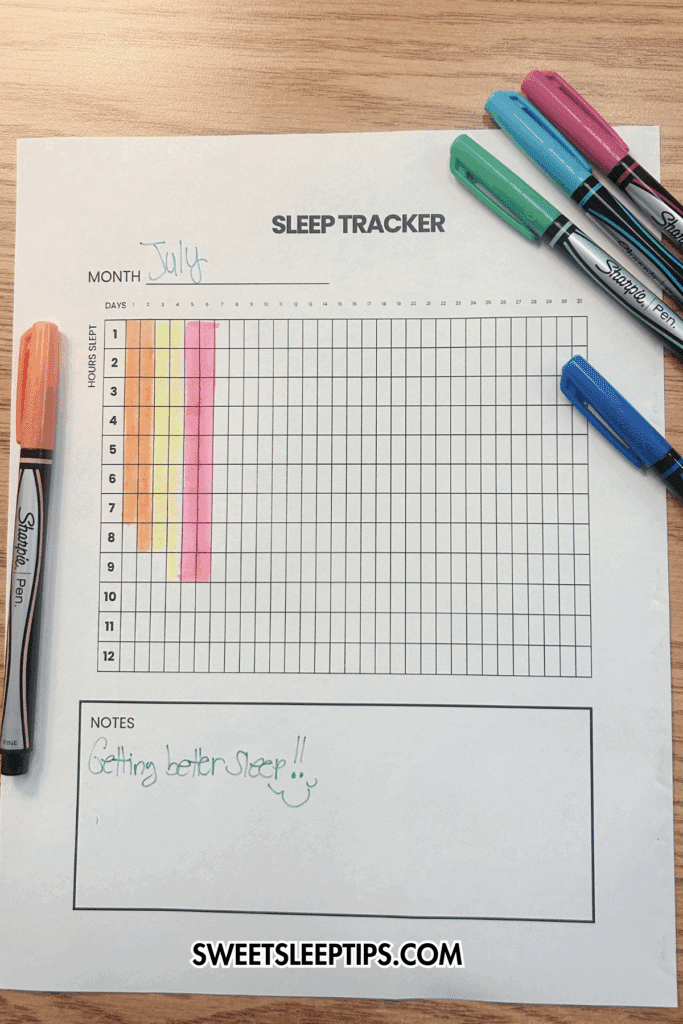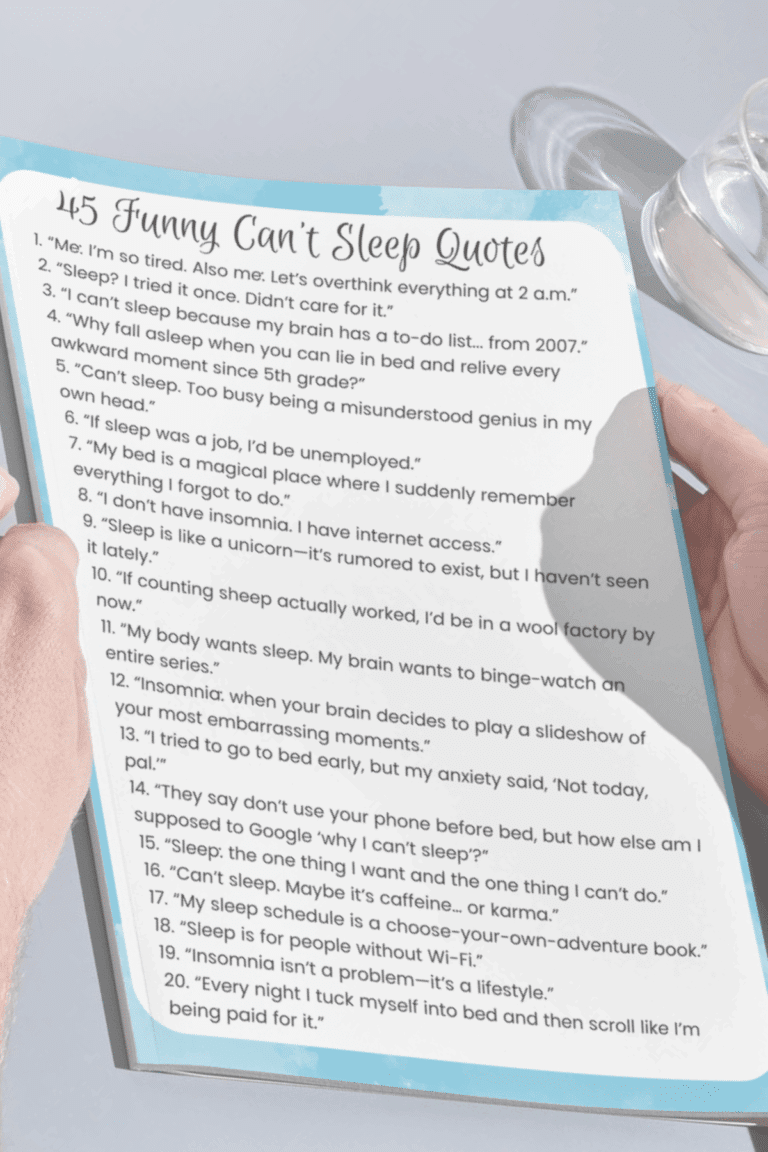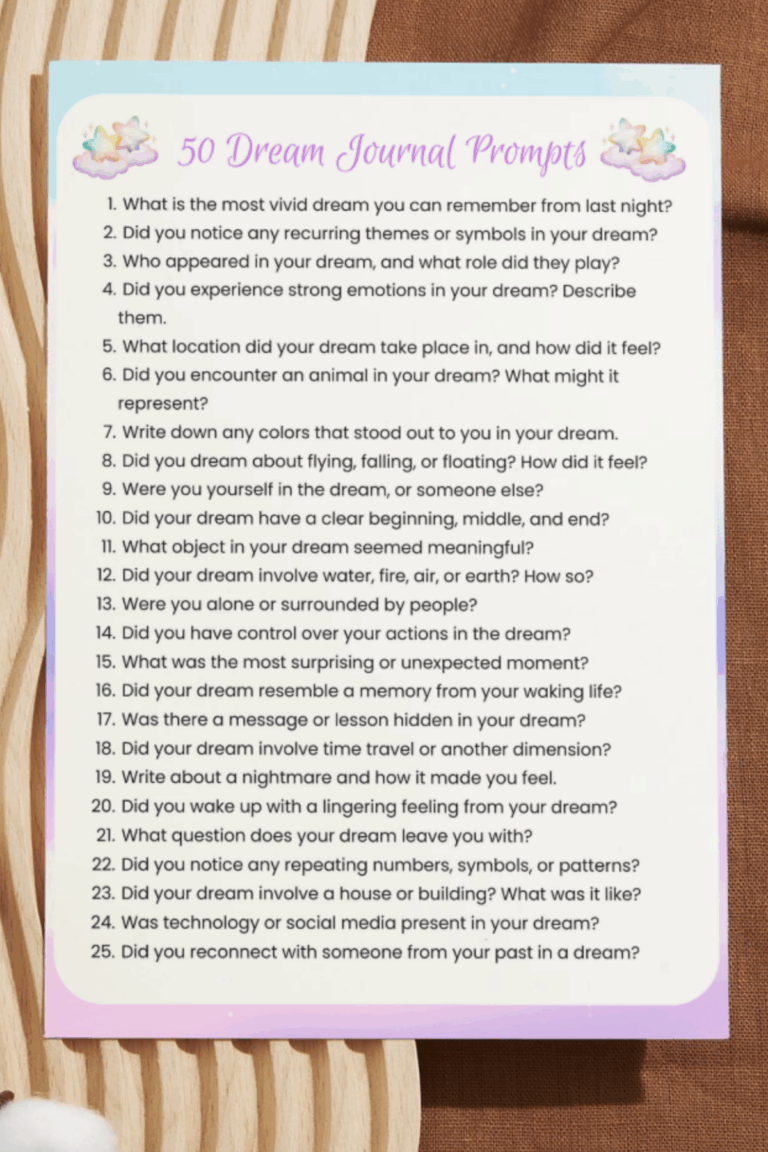How to Create a Sleep Schedule That Actually Works
Are you waking up tired all the time, or worse, not sleeping and all? Are you searching for some easy ways to get the rest you need and deserve? If so, it’s time to create a sleep schedule that actually works. Keep reading to learn more and get the sweet sleep tips you need tonight for better mornings.
I may earn a small commission for affiliate links in this post at no extra cost to you. Please read my privacy policy and privacy page for more information. As an Amazon Associate, I earn from qualifying purchases.
If you’re like me, you’ve probably woken up a time or two (or more!) wondering why you still feel tired, even after a full night’s sleep.
A good sleep schedule isn’t just about how many hours you spend in bed.
It’s about consistency and what your body needs to rest, repair, and recharge.
After spending over 25 years in the mattress industry, I’ve seen firsthand just how much a good night’s sleep can transform someone’s life.
And while the right mattress and bedroom setup play a huge role, there’s another piece of the puzzle that often gets overlooked—your sleep schedule.
The truth is, even the most luxurious bed won’t help if your body clock is out of sync.
I’ve tried plenty of different night routines myself over the years, and I’ve learned that creating a realistic, sustainable sleep schedule is the key to waking up feeling refreshed instead of groggy.
To help you get started on your journey, I’ll walk you through exactly how to build a sleep schedule that actually works—not just on paper, but in your real, everyday life.
Ready to get started? Great! Fluff up some pillows, relax, settle in, and let’s get into it!
Why a Consistent Sleep Schedule Matters
A regular bedtime might sound like advice you give to kids, but adults need it just as much.
When your sleep routine flips around, your body and mind feel the effects almost right away.
Think of your sleep schedule like a rhythm your body depends on.
When you keep that rhythm steady, the benefits ripple through your whole day.
Let’s break down what happens behind the scenes and why sticking to a set sleep schedule is worth the effort.
Your Body Clock: The Circadian Rhythm
Everyone has a natural timing system known as the circadian rhythm.
This is your body’s internal clock, and it tells you when to feel awake and when to get sleepy.
You can think of it like a gentle conductor guiding your body’s energy throughout the day.
When you wake up and go to bed at the same times, your circadian rhythm keeps everything in sync—from when you feel hungry, to how alert you feel at work or school.
If your schedule bounces around, this clock gets confused, and you might struggle to feel awake in the morning or sleepy at night.
Even small changes, like staying up late on weekends, can throw that internal timing off.
Consistency sends a clear message to your body, letting it know when to start winding down and when to gear up for the day.
Better Mood and Emotional Balance
It’s no secret that sleep affects how you feel, but a regular sleep pattern takes it up a notch.
You might notice you’re less irritable and more patient with others when you sleep and wake at fixed times.
This is because your body and mind feel safer with routine.
Your mood stabilizes, stress feels more manageable, and even the little annoyances don’t hit as hard.
You’re less likely to get stuck in a bad mood after a rough night, and your resilience builds up over time.
It’s like giving your brain a soft pillow to land on, night after night.
Focus and Mental Sharpness
When you keep a steady sleep schedule, your brain thanks you in the morning.
Attention lasts longer, problem-solving feels easier, and you remember things you need to know.
You’ll catch details you usually miss and stay “locked in” during meetings or classes.
A consistent bedtime carves out a window for your brain to rest, sort out memories, and repair itself.
You’ll notice fewer “brain fog” moments and can tackle your day with a clearer head.
More Energy All Day
You might swear by that first cup of coffee, but a regular sleep schedule gives you a stronger boost.
When your body knows when to expect rest, it’s much better at recharging your energy.
This means you wake up, get moving, and keep your momentum going without those big dips in the afternoon.
Instead of hitting a wall after lunch or craving a nap in the middle of the day, you move through your schedule with steady, reliable energy.
It’s your body’s own version of a good power supply.
Long-Term Health Benefits
A regular sleep pattern isn’t just about how you feel this week.
Over the months and years, it stacks up to serious health rewards.
Research shows that people with predictable sleep and wake times are potentially less likely to face problems like:
- High blood pressure
- Heart disease
- Weight gain
- Depression or anxiety
Keeping your sleep schedule can very possibly support your heart, your waistline, and even your immune system.
Over time, those small habits add up to bigger rewards than any one night of good sleep can offer.
Why It’s Worth Your Time
It’s easy for life to pull you off track—family, work, and social plans can all crowd out a set bedtime.
But if you give your schedule the same respect you give your daily routine, your body will repay you in focus, energy, and emotional balance.
You can treat your bedtime as a daily investment, not a restriction.
The more you stick with it, the more you’ll notice the benefits showing up in the little details of your day.
It’s one of those quiet routines that can change how you feel, think, and move, day after day.
Common Barriers to a Healthy Sleep Schedule
Finding a steady sleep routine can feel like a tightrope walk.
Even with the best intentions, daily life throws plenty of curveballs that can push your bedtime later or wake-up call earlier than planned.
Many small habits or events chip away at your schedule.
Spotting these roadblocks is the first step toward building healthy, repeatable routines that give you the rest you need.
Irregular Work Shifts
If your job asks you to work late nights (my husband was on midnights for many years) or switch shifts often, sticking to a consistent sleep schedule can be tough.
Your body craves routine, but unpredictable hours can throw off your internal clock day after day.
Whether you work in healthcare, law enforcement, or hospitality, these hours can confuse your natural signals for feeling alert or sleepy.
Trying to sleep during the day presents other challenges—sunlight, outside noise, and family life can all work against your tired brain.
Over time, swinging between days and nights can make you feel like you’re trudging through fog, never quite catching up on real rest.
Use of Screens Before Bed
Phones, tablets, and TVs seem harmless at night, but they can sabotage your sleep without you noticing.
The blue light from screens tricks your brain into thinking it’s still daylight.
This delays the release of melatonin, a key hormone that nudges you toward sleep.
It might feel like winding down with a show or scrolling social media should do the trick, but these habits train your mind to stay alert.
Before you know it, a quick check of messages turns into a full hour of lost sleep.
To help, I have a rule not to look at my phone once it’s on the charger in another room until morning.
Social Commitments in the Evenings
Late dinners, parties, or getting together with friends can stretch your bedtime far past your usual hour.
Social events often skip over usual routines, and before you know it, the clock is well past midnight.
Even if these nights are fun, they can leave you playing catch-up the next morning.
Prioritizing relationships is important, but regular late nights make it tough for your body to trust a set schedule.
Sleep debt tends to pile up fast when time spent with others regularly pushes your rest to a lower spot on the list.
Stress and Anxiety
Worry and stress sneak into your evenings and can easily keep you awake.
If your thoughts race when your head hits the pillow, you’re not alone.
Imagine your mind as a light switch that doesn’t want to turn off—restless worries about work, money, or relationships can keep you alert even if your body feels tired.
Ongoing stress raises levels of cortisol, another hormone that keeps your brain on high alert.
Even when you desperately want to sleep, your mind resists, and your usual routine gets disrupted.
This leads to fragmented rest and makes bedtime less predictable night after night.
Inconsistent Routines on Weekends
Weekends can feel like a free pass to sleep in or stay up late, especially after a long work week.
But shifting your schedule back and forth creates a kind of “social jet lag.”
On Monday, your body suddenly needs to switch gears again, and this can drag down your energy and mood.
These ups and downs confuse the signals your internal clock relies on.
Before you know it, Mondays feel heavy, and it gets harder to fall asleep at your set time later in the week.
How to Build and Maintain a Healthy Sleep Schedule
So you now know why a steady sleep schedule matters, but building one still feels hard.
Maybe your nights are unpredictable or mornings just never feel right.
Change is possible, even if you have struggled before.
It all comes down to the right sleep routines and simple actions you repeat daily.
The best sleep habits aren’t flashy—they’re quiet, patient, and stick around no matter what your day throws at you.
This section shows you real steps for winding down before bed and handling the rough patches that always happen.
Tips for Winding Down Before Bed
Night routines signal to your body that it’s almost time to sleep, like dimming the lights at the end of a movie.
The calmer your routine, the easier sleep will come.
If winding down feels impossible, try weaving a few of these steps into your evening.
Even small changes can make a big impact over time.
Here’s a sample wind-down plan you can follow or adapt to your own needs:
- Turn Off Screens Early:
About 30 to 60 minutes before bed, put your phone, tablet, or computer away. The blue light from screens keeps your brain awake and alert. Try charging your phone in another room or setting an “alarm” to remind you to unplug. - Dim the Lights:
Lower the lights in your home to cue your body that bedtime is near. Soft, warm lighting helps your brain shift toward rest. - Try a Relaxing Activity:
Pick something that soothes you but doesn’t get your heart racing or make you think too hard. These are great options:- Read a physical book or magazine (not an e-reader if it glows)
- Do gentle stretches or yoga
- Listen to calm music or a podcast
- Take a warm shower or bath
- Practice Sleep Meditation:
Deep breathing or a few minutes of guided meditation can quiet racing thoughts. Even a slow, steady focus on your breath helps your body relax. If you’re not sure where to start, try this:- Inhale deeply for four seconds, hold for four seconds, exhale for four seconds, and pause for four seconds. Repeat this cycle a few times.
- Do a Brain Dump:
If your mind starts running through tomorrow’s plans when your head hits the pillow, jot down your thoughts before bed. This clears mental clutter and helps you let go for the night.
Not every step needs to happen every single night.
The key is creating a pattern that lets your mind and body know that sleep is the next chapter, not a surprise twist.
How to Handle Setbacks and Inconsistencies
Even the best-laid plans hit bumps in the road.
Maybe you stay up too late to finish a show, or stress keeps you awake.
Missing a few nights is part of being human, not a sign of failure.
What matters most is what you do next.
When you slip up, here’s how to get back on track without letting guilt win:
- Be Kind to Yourself:
Everyone misses a bedtime or loses a whole week to chaos now and then. Harsh self-talk doesn’t help; gentle honesty does. - Get Back to Your Routine as Soon as Possible:
Pick up your routine the next night or even the next morning if possible. Consistency, not perfection, shapes your sleep schedule over time. - Resist the Urge to “Make Up” Sleep at Odd Hours:
Sleeping in late or napping for hours may feel good, but it often throws your natural rhythm off even more. Instead, aim to return to your regular bedtime and wake-up time as soon as you can. - Notice What Triggered the Setback:
Was it a social event, stress, or just old habits creeping in? If you know what threw you off, you can plan for it next time.
The secret is not giving setbacks more power than they deserve.
Small stumbles do not erase the progress you have made.
Each night is a fresh start, and long-term change comes from those daily resets.
Building a sleep schedule is a lot like planting a garden.
Sometimes things sprout slowly, and sometimes weeds move in.
The best results come not from doing things perfectly, but from coming back again and again, with patience and care.
Troubleshooting Sleep Schedule Issues
Sometimes you do everything right—follow a solid bedtime routine, aim for the same sleep and wake times, set calming rituals in place—yet sleep just won’t cooperate.
If you still struggle to fall asleep, wake up through the night, or can’t stick with new sleep habits, you’re not alone.
Everyone hits roadblocks along the way.
Here’s how to figure out what’s getting in your way, review possible missed steps, and know when it might be time to get extra help.
Do a Sleep Schedule Self-Check
When good sleep habits don’t seem to work, it helps to pause and take stock.
Sometimes the details that trip you up hide in plain sight.
Consider the past week or two and ask yourself:
- Is bedtime different every night, or just once in a while?
- Are you getting out of bed at the same time each day, even on weekends?
- Do naps disrupt your plan?
- Is stress or worry filling your mind at night?
- Are you waking up and checking your phone in the wee hours?
This kind of honest check-in gives you clues about what might be sneaking past your best efforts.
Even small shifts can matter.
For instance, a late-night email or an extra-long nap could throw your rhythm.
Tuck these details into your plan so you see the full picture.
Use a Sleep Tracker
If you’re still unsure what’s holding you back, try using a free printable sleep tracker.
This gives you a clear sense of where things break down.
You might spot a pattern—maybe you’re restless after late dinners, or you always wake up tired on Mondays.
Seeing these trends written out helps you focus your efforts and track progress over time.
Tools and Tricks for Stubborn Sleep
If following the basics still leaves you tossing and turning, consider trying out a few extra strategies.
Sometimes your sleep schedule needs another tweak or two.
Here are a few ideas many people find helpful:
- White noise or earplugs: Constant background sound or blocking noises can smooth out bumps, especially if your home is noisy.
- Block out light: Use blackout curtains, eye masks, or cover electronics that blink. Even small lights can trip up your body’s clock.
- Consistent meal times: Eating at the same times each day can help lock in your rhythm.
- Limit caffeine and alcohol: Both can disrupt quality sleep. Try to avoid them later in the afternoon and evening.
- Gentle movement: A short walk or light yoga in the evening may help your body wind down. Avoid hard workouts close to bedtime.
Add one change at a time and see what sticks.
If something helps, make it a regular part of your night.
You don’t need a full overhaul—often, the smallest changes matter most.
When Sleep Problems Persist
What if you’ve tried all the steps and still can’t settle into a steady sleep schedule?
Sleep issues can have medical or mental health causes that good habits alone won’t fix.
While everyone has rough patches, ongoing trouble is worth a closer look.
Some signs it’s time to check in with a doctor:
- It takes more than 30 minutes to fall asleep almost every night
- You wake up often, or are awake for long stretches during the night
- You still feel tired even with seven or eight hours in bed
- Others say you snore loudly or gasp in your sleep
- You have frequent headaches, trouble focusing, or mood swings
- Naps don’t leave you feeling refreshed
If any of these ring true for you, a health professional can help walk you through the next steps.
They may suggest a sleep study or screen for medical conditions like sleep apnea or chronic insomnia.
Sometimes mental health issues, such as anxiety or depression, play a part too.
Trust your instincts if things feel off.
Sleep problems are common and nothing to be embarrassed about.
Professionals see these patterns all the time and can help find a solution that works for you.
You don’t have to keep guessing.
How to Talk With Your Doctor About Sleep
If you decide to talk with your doctor, bring your sleep tracker or notes from the past week or two.
This information saves time and helps your provider spot patterns right away.
Include these details:
- When sleep issues started
- What helps or makes things worse
- Any major life changes, stress, or illness
- How tiredness affects your mood, focus, or energy
- Any family history of sleep disorders
Doctors can offer treatments, recommend therapy, or run tests when needed.
Sometimes, even a few sessions of sleep-focused therapy (called cognitive behavioral therapy for insomnia) can help you turn things around when simple changes don’t work.
Remember, everyone struggles sometimes, but you never have to tough it out alone.
If persistent sleep problems are making life harder, support is just a phone call away.
If Your Child or Partner Has Sleep Trouble Too
Maybe you’re not the only one lying awake—sometimes kids or partners have their own difficulties.
If others in your house struggle, encourage everyone to try the same gentle routines.
For kids, stick to regular bedtimes, calming routines, and comfort if they wake at night.
For partners, share what’s helped you, and ask them to use a sleep tracker on their own for a week or two.
A restless household affects everyone.
Troubleshooting sleep as a team, with open conversations and shared habits, helps smooth rough patches for the whole family.
Final Thoughts
At the end of the day, creating a healthy sleep schedule isn’t about perfection—it’s about consistency.
After decades in the mattress industry and years of testing different sleep habits myself, I’ve found that the small, steady changes are what really make the difference.
Whether it’s setting a consistent bedtime, building a calming night routine, or simply giving your body the chance to fall into a natural rhythm, these steps can completely change how you feel each morning.
Better sleep doesn’t just happen—it’s something you create.
And when you put a schedule in place that truly works for you, you’ll start to see the payoff in more energy, better focus, and nights that finally feel restful.
Your Turn
Thank you for being here and giving yourself a chance at better rest. Share your own sleep schedule wins and struggles in the comments below, and please pass along these tips to someone who could use a gentle nudge or share on social media or Pinterest.
RELATED POSTS:
- How to Sleep Faster and Wake Up Energized Every Morning
- Cozy Bedroom Ideas for Better Sleep: Easy Tips to Create a Sleep Sanctuary
- How to Sleep With Curly Hair: Easy Tips for Curly Hairstyles
- Top 15 Bedroom Essentials: My Must Have List for Better Sleep
- Brain Dump Prompts for Better Sleep: A Nightly Routine for Quieting an Active Mind
- Brain Dump Before Bed for Better Sleep: Free Printable and Simple Night Routine
- Dream Journal Prompts Download: The Easy Way to Start Recording Your Dreams
- Dream Tracker: Free Printable to Turn Your Nightly Dreams into Insights
- Sleep Meditation: Simple Guide for Better Rest
- 50 Sleep Well Quotes to Relax and Rest Easy Tonight [Free Printable]
- Night Routine List for Better Sleep [Free Printable + Simple Steps]
- Simple Night Journal Prompts for Peace and Clarity
- Bedtime Habit Tracker: Free Printable for a Better Sleep Routine
- Night Affirmations Before Sleep: Simple Steps for a Calmer Mind [Free Printable Cards]
- How to Build a Sleep Routine That Actually Works
- Sleep Hygiene Tips That Work [Free Printable Checklist Included]
- 45 Can’t Sleep Quotes Funny: To Laugh When Sweet Sleep Won’t Come
Hi, I’m Debbie, general manager of a mattress store chain with 25+ years helping people improve their sleep quality. At Sweet Sleep Tips, I share natural, practical sleep solutions, calming bedtime habits, and printable tools to help you fall asleep faster and wake up refreshed. My goal is to make better sleep simple, healthy, and stress-free.
Follow me on Pinterest, Instagram, and Facebook to stay up to date with all the latest Sweet Sleep Tips.






































I really enjoyed this article! I’ve been looking for ways to sleep better, and keeping a steady bedtime is definitely something I need to work on. Thanks for breaking it down so clearly. Oh, and I love the curtains that block out the light. It’s a plus for me.
Great tips! I need to work on getting to bed earlier than I do right now, but it’s tough when there’s so much to do after the kids are in bed. Your advice is helpful, though, and I’ll be putting some of these ino practice soon!
Practical tips on creating a sleep schedule that works in my opinion. Thanks a lot for putting it together.
Great article! Quality sleep is sooo important, and I firmly believe a huge chunk of issues adults have are attributed to lack of sleep. Thanks for the great info! 🙂
Love this! I’m definitely on a set schedule and my body just knows when it’s time! Reducing screen time helps so much with my insomnia!